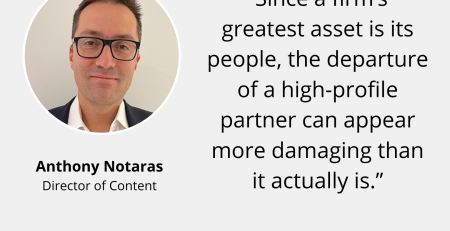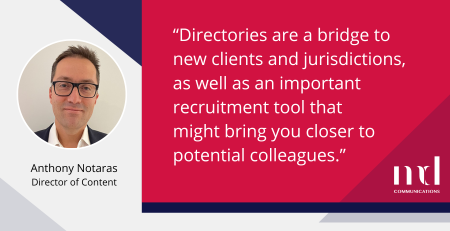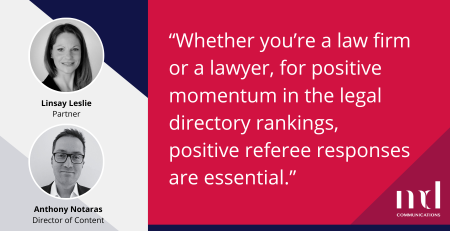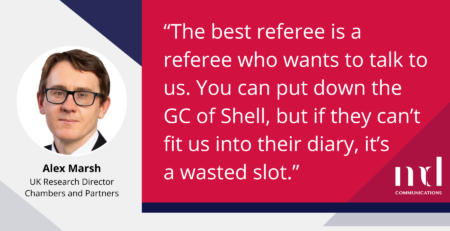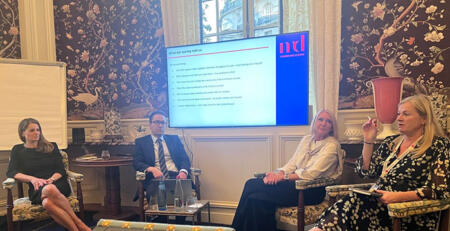Head of Directories Linsay Leslie discusses how to manage referees when submitting to the global legal directories.
Securing recognition in a global directory is a lot of work. Although the process is vastly within your domain (including the submission itself), the details that you cannot easily control will frequently affect your performance. Even if you successfully coordinate your internal workflows and produce the perfect submission, referee feedback may jeopardise all your hard work. Luckily, there are ways to put you back in the driver’s seat when it comes to referee management.
Where do I start?
First, check the requirements of the specific directory for how many referees you can provide (some cap the numbers while others do not). Second, prepare a list of clients with whom you worked during the research period and list individuals who managed the instructions. You can include CEOs, managers, GCs, junior in-house counsel, or even paralegals – but always choose contacts who have worked directly with you or your team.
Finally, have a think about other professionals working on the matter: sometimes you may be able to reach out to the client’s accountant, or the global counsel who referred you for local advice. Peer recognition goes a long way when dealing with confidential matters where your clients are hesitant to engage with the ranking process.
Who is the ideal referee?
The answer is simple: the one who responds. Before you add the most senior person in the company to your referee spreadsheet, consider more junior/mid-level employees who have more direct experience of working with you. Not only are they more likely to respond, but they also tend to provide a richer picture of their experience with your practice. Aim for a good mix of senior, mid-level, and junior referees, and the results may surprise you.
How do I approach clients for feedback (without making it awkward or irritating)?
Admittedly, asking your clients to provide feedback may feel bothersome. Luckily, there is a simple solution: turn the awkward request into an opportunity to check in with your client. This is especially important with small-project clients you where you did not quite manage to build a more long-standing relationship. Turn the awkward nudge into a business opportunity by refreshing your client’s memory of your past performance and enquiring about their ongoing business concerns. You may be surprised by how open they are to your offer of support.
How can I be sure that my referees will provide positive feedback?
Unfortunately, we have heard horror stories of firms putting forward referees who deliver less than positive feedback, which they hadn’t anticipated, with rankings then suffering. We always recommend teams take a proactive approach and run a short client listening programme to gather their own feedback first, which will flush out any issues with client service delivery or the wider relationship, and will guide you on who to include in the referee list. This can also be a useful process to find out what makes your practice stand out to your clients, if you don’t already know.
If you are feeling at a loss when it comes to securing recognition in the rankings or want to hear more about how client listening can support your efforts with the directories, contact Linsay Leslie.
Download our guide ‘Legal directories: get better results and improve your ROI’



